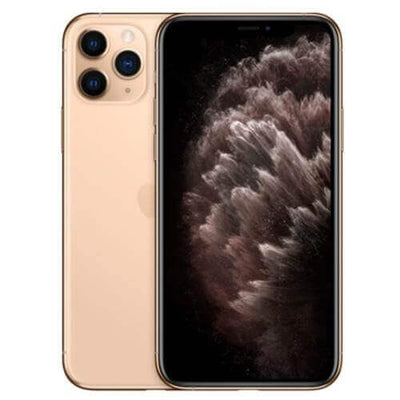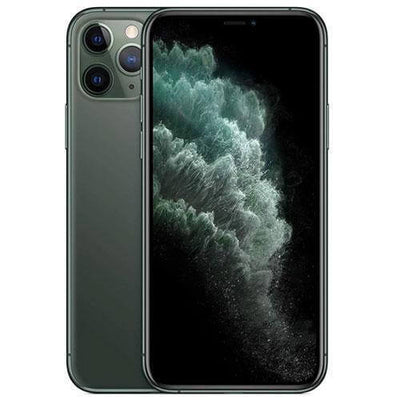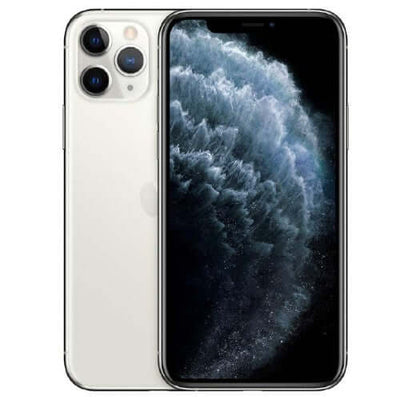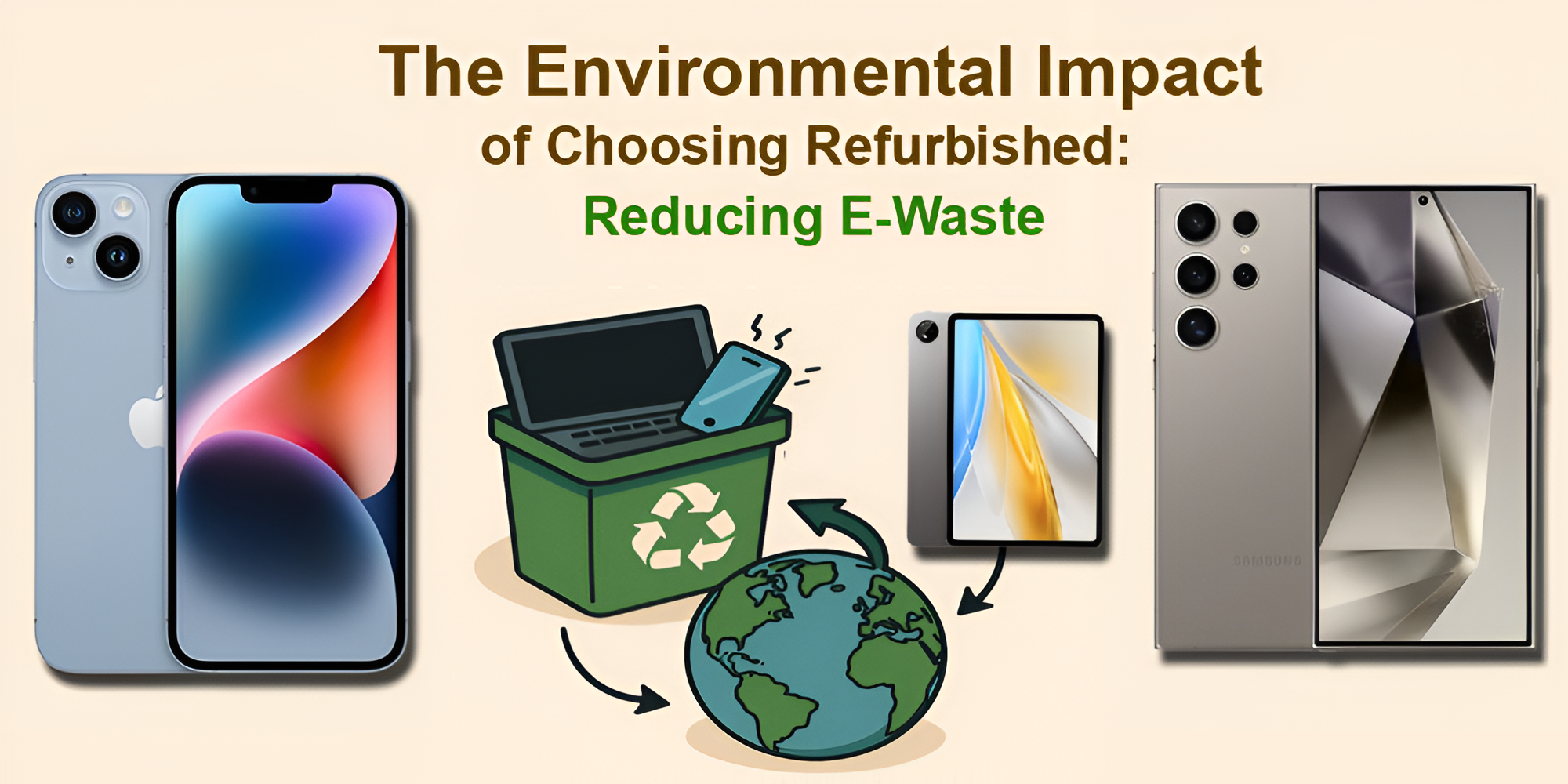The Need to Choose Refurbished Electronics
Electronic waste becomes a global problem in this technologically driven atmosphere of our times. The dynamics of consumerism keep devices more frequently upgraded, resulting in tons of discarded cell phones, laptops, and gadgets laying in landfills. Refurbished electronics are said to reduce e-waste and the more eco-friendly alternative. The environmental impact of buying refurbished is often ignored, whereas it strongly supports the environment. Very often, sustainability is supported by people choosing refurbished instead of new. This blog covers such intersections between the environmental impact of choosing refurbished on e-waste reduction, environmental benefits, and responsible consumption.
How Refurbished Devices Reduce E-Waste
An environmental impact of choosing refurbished begins with the lesser number of electronic items ending in landfills. Getting rid of around a million devices every year, choosing refurbished electronics thereby reduces e-waste. These products are tested, repaired, and refurbished to ensure complete functional status and therefore reduce the waste on useless junk. The environmental impact of choosing refurbished means less infiltration of harmful substances into soil and water. Extending the life cycle of electronics reduces the need to extract raw materials, energy consumption, and emissions. Clearly, that environmental impact of choosing refurbished translates into a cleaner and greener tomorrow.
-
The environmental impact of choosing refurbished includes reducing the number of devices thrown away.
-
It helps prevent harmful chemicals from polluting the soil and water.
-
The environmental impact of choosing refurbished extends the life of electronics, cutting down production demand.
-
Choosing refurbished lowers overall e-waste and supports a cleaner planet.
Conserving Natural Resources Through Refurbishment
Choosing refurbished also enriches the environment and natural-resource conservation. New electronics require precious metals such as gold, silver, and rare earth metals. The purchase of refurbished goods decreases the demand for fresh mining and extraction of resources, thereby minimizing water pollution, Landschaft degradation, and energy usage. The environmental impact of choosing refurbished thus directly and powerfully conserves the existence of nature. Unlike the new, which drain resources, refurbished electronics make a far better use of what already exists. Consequently, the environmental impact of choosing refurbished hurls toward the right kind of smarter and sustainable choices.
-
Reduces demand for raw materials like gold, silver, and rare earth elements.
-
Prevents harmful mining and extraction that damages ecosystems.
-
Lowers water and soil pollution caused by resource processing.
-
Decreases energy consumption used in manufacturing new devices.
-
Maximizes use of existing materials, promoting resource efficiency.
Lower Carbon Footprint with Refurbished Products
Another aspect linked to the environmental impact of the choice of refurbished is a reduced carbon footprint. The process of manufacture emits huge amounts of CO₂ into the atmosphere. Refurbished products, in contrast, do not require any forms of new manufacture and thus reduce about 70% of emissions. Choosing refurbished is a climate-conscious decision that helps slow global warming. Furthermore, the environmental impact of choosing refurbished involves reduced energy consumption during production and transportation. Choosing a refurbished smartphone or laptop helps sustain a life with much less carbon footprint. This means that the environmental impact of choosing refurbished impacts local and global ecosystems.
Promoting Circular Economy and Sustainable Choices
Choosing the refurbished for environmental concerns goes hand-in-hand with the circular economy concept, where items are reused, repaired, and recycled. Buying refurbished electronics participates in long-lasting sustainability. The environmental impact of choosing refurbished goes way farther than e-waste management; it also changes purchasing behaviors. Buyers are now encouraged to consider greener purchases instead of buying fresh goods. The environmental impact of choosing refurbished encourages industries to take matters of sustainable production in their own hands. Ensuring this transition maintains the environmental balance long-term and also helps in the global e-waste crisis.
Choose Refurbished, Protect the Planet
It is easy to see that the environmental impact of choosing refurbished is really tremendous: Cutting e-waste, saving resources, cutting emissions, and moving towards a sustainable world. In a world where the headlines talk more about climate change and pollution, small actions really matter: Yes, in a big way they do! It is not actually about saving money while purchasing refurbished; it is saving the Earth itself. By making wise and eco-conscious choices, we save our planet and our future generation. Let us try and decrease the digital footprint while committing ourselves to green living-from now on. The environmental impact of choosing refurbished is a ripple that starts with just one ripple.
FAQs on the Environmental Impact of Choosing Refurbished
Q.1. How does choosing refurbished electronics reduce e-waste?
Choosing refurbished prevents old electronics from going to landfills, cutting down overall electronic waste.
Q.2. Are refurbished electronics safe and reliable to use?
Yes, refurbished devices are tested, repaired, and certified for safe use, often with warranties.
Q.3. What environmental benefits come from buying refurbished?
Refurbished products save energy, reduce emissions, and conserve natural resources used in manufacturing.
Q.4. Does buying refurbished really help the planet?
Yes, it reduces the demand for new products, lowering the carbon footprint and promoting sustainability.
Q.5. Can refurbished electronics support the circular economy?
Absolutely. Refurbished devices promote reuse and recycling, key principles of the circular economy.





















